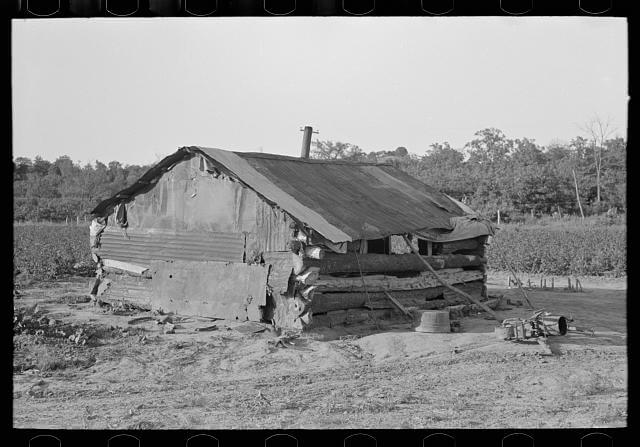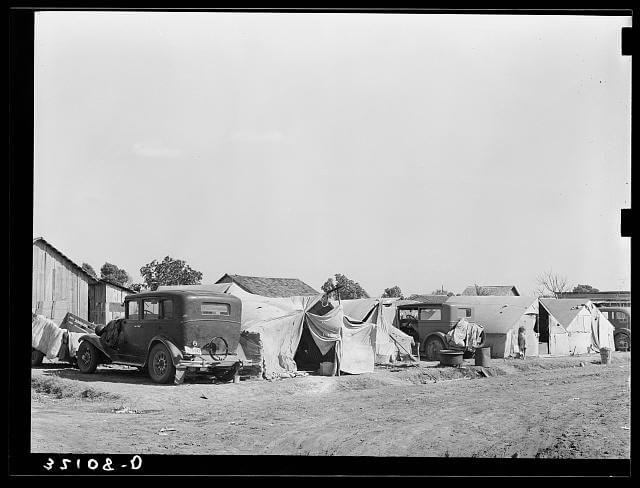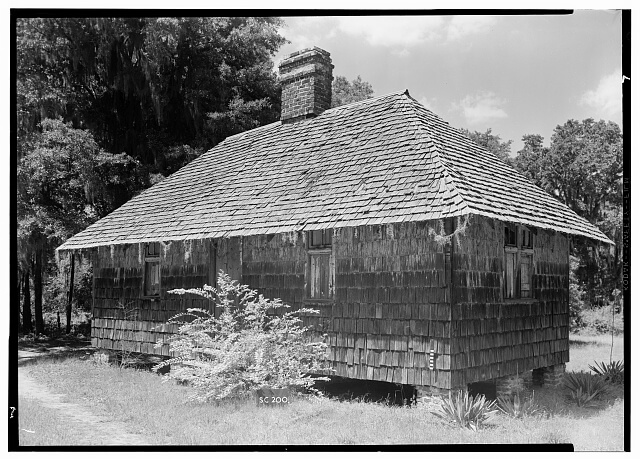HLA course unpacks roots of structural racism in American agriculture
“When I came to Purdue I knew it was a land-grant school. I didn’t know all that entailed in a historical context,” freshman Emily Earnshaw said, discussing the many history lessons she’s gained this semester in Structural Racism in U.S. Agriculture course in the Department of Horticulture and Landscape Architecture (HLA).
“For example, I didn’t know, and I don’t think most of my peers do, that this school was built on land taken from Native Americans. And reparations have never been made for that.”
Linda Prokopy, HLA department head and professor, and Steve Hallett, HLA professor, instruct the new one credit course. The 12-student discussion-based course leads students all the way from Pre-Colombian agriculture in the Americas to Black Americans in agriculture today, examining major historical touchstones like land theft, slavery, the failure of Reconstruction, migrant workers, sharecropping and more.
“We do a historical tour, starting with what land use looked like before the European settlers,” Prokopy said. “This stuff is not fun. It’s hard and it’s challenging to take head on. But we are finding most of our students come to the course ready to engage.”
Mason Wyss, a HLA student currently on leave from Purdue serves as the teacher assistant for the course. He helped curate the syllabus and participates in facilitating discussion. He has tried to incorporate varied media into the syllabus, supplementing the reading with podcast episodes and video.
“We’re covering really horrific stuff in this course, genocide, slavery, systemic discrimination,” Wyss said. “They’re learning how imbedded in American history these things really are. They’re not always happy when they come to class but I think that’s justified.”
Mary Crane - 82 yrs. old- was an ex-slave living in Mitchell, Ind. at the time of this photo, taken in 1937. Provided by the Library of Congress.
Portrait of Henry Holt, a black farmer who lived near Black River Falls, Wisconsin, who was moved off his land by Resettlement Administration in 1937. Image provided by The Library of Congress.
Native American child of tenant farmers "hunkering down" in the doorway of farm home near Sallisaw, Oklahoma. Hunkering down was a slang term for this way of sitting on your heels in 1939. Provided by the Library of Congress.
Mary Crane - 82 yrs. old- was an ex-slave living in Mitchell, Ind. at the time of this photo, taken in 1937. Provided by the Library of Congress.
Portrait of Henry Holt, a black farmer who lived near Black River Falls, Wisconsin, who was moved off his land by Resettlement Administration in 1937. Image provided by The Library of Congress.
Earnshaw said she only received a glimpse of many of the eras they’re studying in high school history and she never appreciated the cumulative effects of systemic racism and how it affects populations today.
“My major is in agriculture, so I really do need to understand these histories and understand how, in many ways, they are present today,” she added. “Much of what I’ve learned has disturbed me, especially how structural racism is sustained today.”
One challenge of the course is that the instructors are white and so they acknowledge that their understanding of racism only goes so deep.
“One way we’ve tried to overcome this is by centering the voices of the marginalized in our course material,” Wyss explained. “The instructors and students also give lots of space for our Black students to talk, and it is their words and experiences that often spark discussion.”
"I didn’t know, and I don’t think most of my peers do, that this school was built on land taken from Native Americans. And reparations have never been made for that.”
Hallett said the department plans to offer two courses that are more complimentary next semester: The Cultures and Agricultures of the United States and Colonialism, Globalization and Food Justice. Each course will be one credit and offered at different times so, if students want, they can take all three to make a full credit course.
“I think we’d like to reach a little further into the general student population with these classes,” Hallett said. “We should be trying to reach people less comfortable with these concepts. The ultimate goal and the ultimate challenge is to have more of an impact with a less obvious audience.”
Wyss said he hopes courses like this will one day become a requirement in all agriculture programs because if students are unaware of how racism is enmeshed in agriculture then their education is incomplete.
Hallett echoed this sentiment. “We want to broaden the conversation of race within the college,” he added. “We’re not trying to be critical or difficult, we just think courses like this are positive inclusions in course offerings. Our preference is to keep the classes small and intimate while encouraging other departments to offer similar classes. Discussions of race should be relevant to and embedded in the discipline.”
 Home of a Native American tenant farm family in Oklahoma in the early 1900s. Provided by the Library of Congress
Home of a Native American tenant farm family in Oklahoma in the early 1900s. Provided by the Library of Congress  Mexican Migrant camp in Weslaco, Texas in 1939. Provided by the Library of Congress
Mexican Migrant camp in Weslaco, Texas in 1939. Provided by the Library of Congress  Former slave quarters on the Hopsewee Plantation in South Carolina. Provided by the Library of Congress
Former slave quarters on the Hopsewee Plantation in South Carolina. Provided by the Library of Congress 




